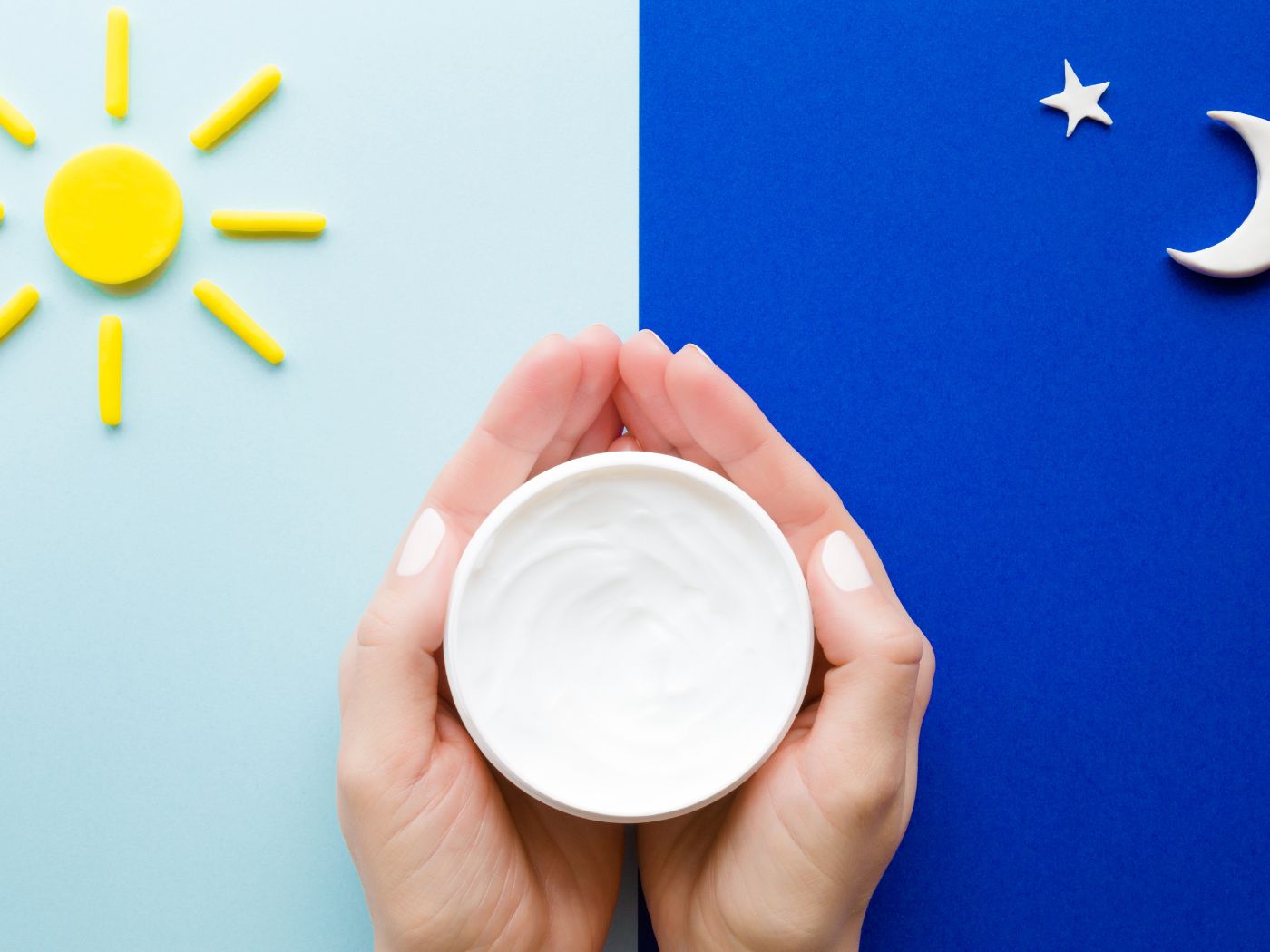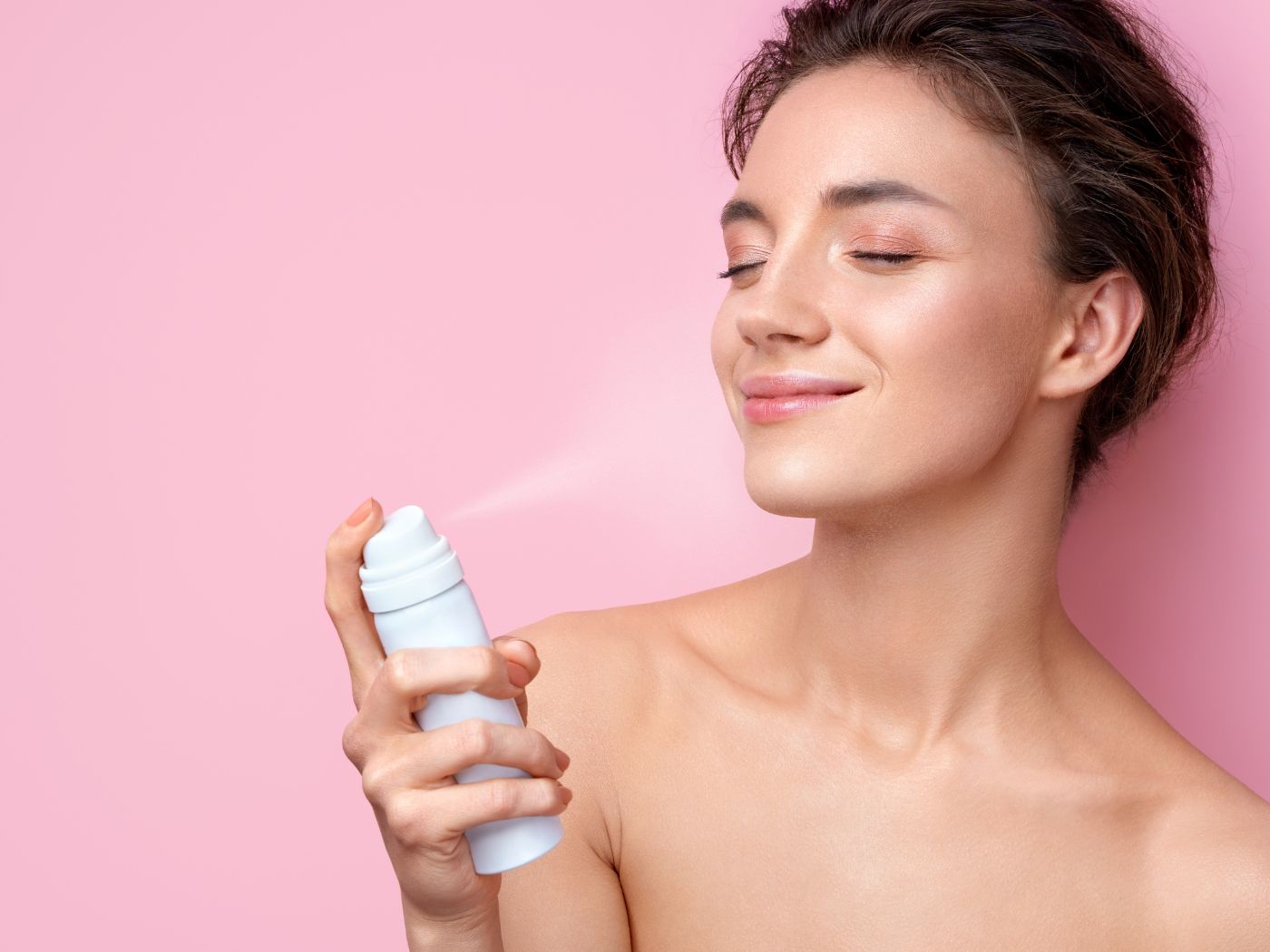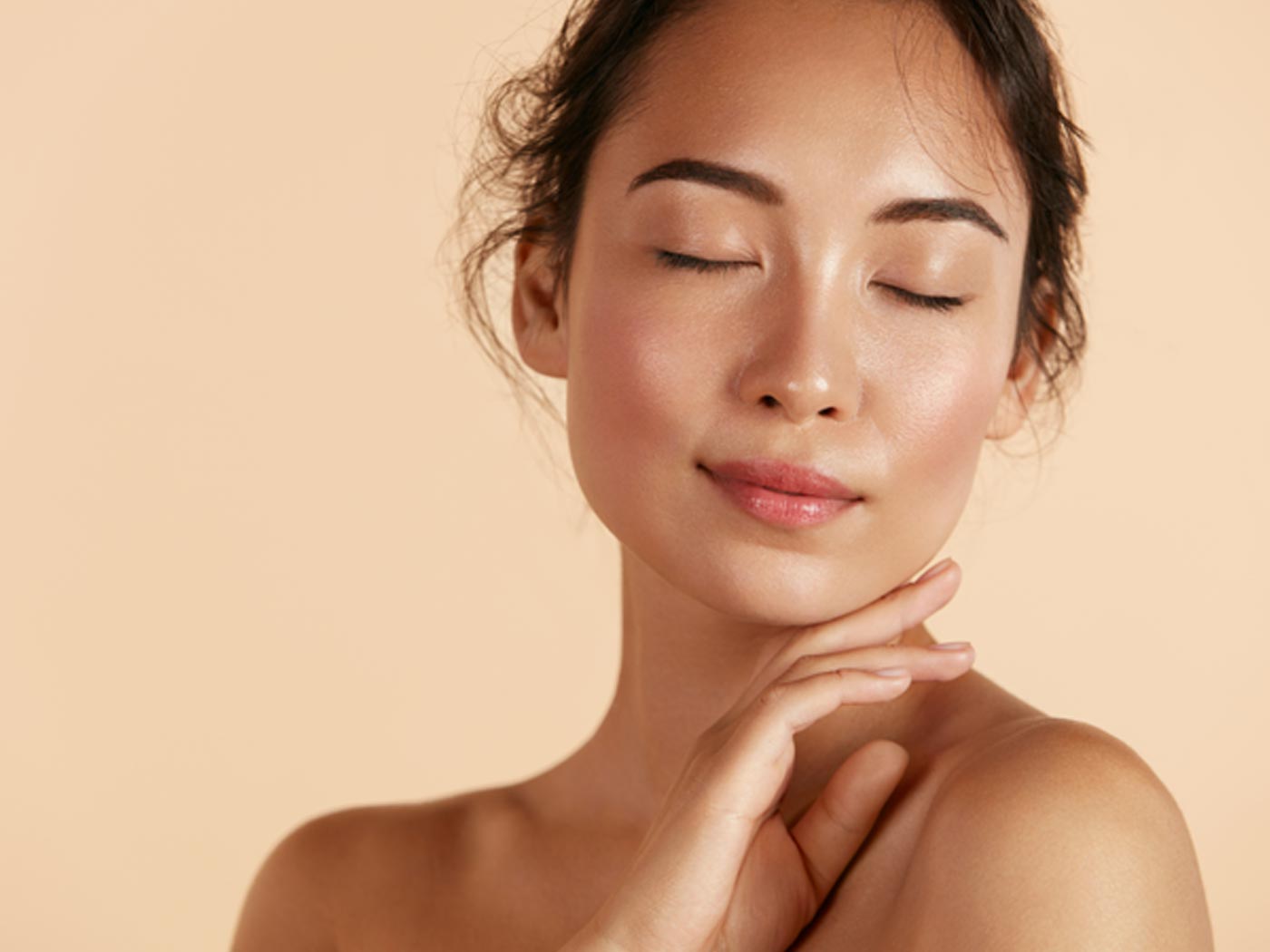- Understanding The Difference: Day Cream Vs. Moisturiser
- Benefits Of Using A Day Cream
- Addressing Specific Skincare Concerns With Day Creams
- Incorporating A Day Cream Into Your Skincare Routine
- FAQs
There are different ways to moisturise our skin but the two most popular are using a day cream or a moisturiser. However, do you know the difference between day cream and moisturiser? Or do you know when to use a day cream or when to use moisturiser? Today we will learn all about these questions and more.
We will discuss the benefits of using a day cream instead of a moisturiser, specific advantages of using a day cream in your skincare routine and more! So let’s begin, shall we?
Understanding The Difference: Day Cream Vs. Moisturiser
Day cream and moisturiser are two terms often used interchangeably in the skincare industry, but they can have slightly different meanings depending on the context. Here's a breakdown of day cream vs. moisturiser: which is better for your skin?
-
Moisturiser:
In general, a moisturiser refers to a product designed to hydrate and nourish the skin. It typically contains ingredients that help retain moisture, prevent water loss from the skin, and improve its overall hydration levels. Moisturisers come in various forms such as creams, lotions, gels, and serums, catering to different skin types and needs.
-
Day Cream:
A day cream specifically refers to a moisturiser that is formulated and marketed for daytime use. Day creams often have additional properties or ingredients that make them suitable for daytime skincare routines.
- Sun protection:
Many day creams include sunscreen ingredients to protect against harmful UV rays. They may have SPF (Sun Protection Factor) ratings indicating the level of protection against UVB rays. - Lighter texture:
Day creams are typically formulated with a lighter texture that absorbs quickly into the skin, making them suitable for applying makeup over them. - Antioxidant protection:
Some day creams contain antioxidants like vitamins C and E or botanical extracts to help protect the skin from environmental damage caused by free radicals.
It's important to note that not all moisturisers are marketed as day creams, and not all-day creams provide sufficient moisture for the night. The distinction between the two is primarily about the intended use and formulation rather than a fundamental difference in their function.
When selecting skincare products, it's essential to consider your skin type, concerns, and preferences. If you're looking for a moisturiser specifically for daytime use, a day cream with added sun protection and a lighter texture may be a suitable choice. However, for nighttime use, you may opt for a more hydrating and nourishing moisturiser, such as a night cream or a thicker moisturising balm.

Benefits Of Using A Day Cream
Using a day cream as part of your skincare routine can offer several benefits for your skin. Here are some of the benefits of using a day cream instead of a moisturiser!
-
Hydration:
Day creams are formulated to provide hydration to the skin, helping to replenish moisture and maintain optimal hydration levels throughout the day. They contain ingredients like humectants, emollients, and occlusives that help attract and lock in moisture, preventing dryness and dehydration.
-
Sun Protection:
Many day creams include sunscreen ingredients, such as titanium dioxide or zinc oxide, or chemical filters like avobenzone or octinoxate, which protect against harmful UV rays. Regular use of a day cream with SPF can help shield your skin from sun damage, including sunburn, premature ageing, and the risk of skin cancer.
-
Environmental Protection:
Day creams often contain antioxidants like vitamins C and E or botanical extracts that help neutralise free radicals caused by environmental factors such as pollution, smoke, and UV radiation. These antioxidants can help reduce oxidative stress, protect the skin's natural barrier, and prevent damage caused by external aggressors.
-
Makeup Application:
Day creams generally have a lighter texture and absorb quickly into the skin, making them an ideal base for makeup application. They can provide a smooth canvas for foundation and help the makeup adhere better and last longer.
-
Nourishment and Skin Conditioning:
Day creams may contain ingredients like vitamins, peptides, or botanical extracts that provide additional nourishment and conditioning benefits to the skin. These ingredients can help improve skin tone and texture, boost collagen production, and address specific concerns like fine lines, dullness, or uneven skin tone.
-
Daily Skincare Ritual:
Incorporating a day cream into your daily skincare routine can help establish a consistent habit of taking care of your skin. It serves as a reminder to prioritise self-care and maintain a healthy skincare regimen, leading to long-term benefits for your skin's health and appearance.
Remember to choose a day cream that suits your skin type, addresses your specific concerns, and offers the level of sun protection you need. It's also important to reapply sunscreen or use additional sun protection if you'll be exposed to the sun for an extended period.
Addressing Specific Skincare Concerns With Day Creams
Day creams can be formulated to address specific skincare concerns, offering targeted benefits for various skin types and conditions. Here are some common concerns that can be addressed with the use of specialised day creams:
-
Anti-Ageing:
Many day creams contain ingredients like retinol, peptides, or hyaluronic acid, which can help reduce the appearance of fine lines, wrinkles, and sagging skin. These ingredients work to improve collagen production, boost elasticity, and promote a more youthful complexion.
-
Brightening and Even Skin Tone:
Day creams infused with ingredients like vitamin C, niacinamide, or botanical extracts can help brighten the skin and even out discolouration or hyperpigmentation. These ingredients can fade dark spots, improve overall skin tone, and impart a radiant glow.
-
Acne and Blemish Control:
Some day creams are specifically designed for acne-prone or oily skin types. They often contain ingredients like salicylic acid, tea tree oil, or benzoyl peroxide that can help control excess oil, reduce breakouts, and minimise the appearance of blemishes.
-
Hydration and Dryness Relief:
Day creams formulated for dehydrated skin types tend to have richer textures and include ingredients like ceramides, shea butter, or oils to deeply moisturise and nourish the skin. These creams help restore moisture balance, soothe dryness, and improve skin texture.
When selecting a day cream for specific skincare concerns, it's essential to read product labels, check for suitable ingredients, and consider your skin type and sensitivities. Pure Sense offers a range of natural day creams with individual benefits. You can try Pink Guava Day Cream: With Pomegranate and Bengkoang to moisturise and protect all skin types. Moreover the day cream comes with SPF 20 PA+++ protection.
Incorporating A Day Cream Into Your Skincare Routine
Incorporating a day cream into your skincare routine is relatively simple. Here's a step-by-step guide on how to use a day cream effectively:
- Cleanse your face using a gentle cleanser.
- Apply toner to balance the skin's pH.
- Apply a serum targeting specific concerns.
- Dispense a small amount of day cream onto your fingertips.
- Gently apply the day cream onto your face and neck and massage with your fingertips.
- Apply a broad-spectrum sunscreen on top.
- Wait a few minutes before applying makeup.
Incorporating a day cream into your skincare routine provides hydration, protection, and nourishment for your skin throughout the day. Use it consistently in the morning for the best results.
Conclusion
We hope now you know about the advantages of incorporating a day cream into your skincare regimen.
FAQs
-
How does a day cream benefit the skin differently than a regular moisturiser?
Day creams are specifically formulated for daytime use and offer additional benefits beyond basic moisturization. They often contain ingredients like sun protection factors (SPF) to shield against UV rays, antioxidants to combat environmental damage, and lighter textures that absorb quickly into the skin. Regular moisturisers, on the other hand, focus primarily on providing hydration and nourishment without the specialised daytime benefits.
-
Do day creams provide better sun protection compared to moisturisers?
Day creams that include sunscreen ingredients offer sun protection, but the level of protection may vary. Some day creams have a designated SPF rating, indicating the level of UVB protection they provide. However, if sun protection is your primary concern, using a separate broad-spectrum sunscreen with a higher SPF may offer more reliable and comprehensive protection compared to relying solely on the SPF in a day cream.
-
Should I apply a moisturiser along with a day cream?
Whether you need to apply a separate moisturiser along with a day cream depends on your skin's hydration needs. Day creams are formulated to provide hydration, but if you have particularly dry skin or feel the need for additional moisture, you can certainly layer a moisturiser over or under your day cream. Just ensure that the moisturiser is compatible with your skin type and doesn't interfere with the absorption or performance of the day cream. Experiment and adjust based on your individual skin's needs.







